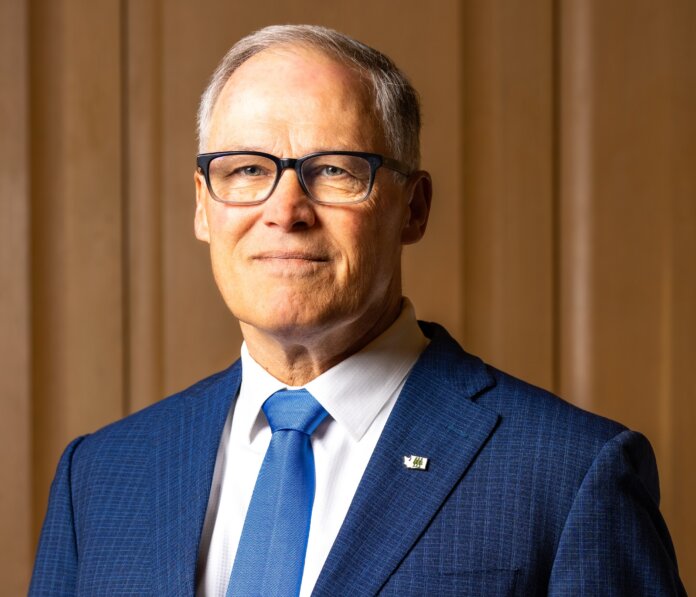The Washington State Department of Commerce has launched its new Electric Vehicle Instant Rebate Program. This program will provide up to $9,000 off a new EV lease for low-income drivers at point-of-sale, bringing lease payments under $200 a month on several popular electric models at current pricing — well below the average gasoline-powered car payment of more than $700 per month.
Washington is the first state to prioritize low-cost leases as part of an EV incentive program. Under the new program, Washington residents earning up to 300% of the federal poverty level — $45,180 annually for a single person, or $93,600 for family of four — are eligible to receive $9,000 for a new EV lease of three years or more, or $5,000 for new EV purchases or two-year leases. Used EVs are also eligible for a $2,500 rebate on both purchases and leases.
The program kicked off recently at an event near King Street Station in Seattle’s Chinatown-International District neighborhood, attended by Gov. Jay Inslee and Commerce Director Mike Fong.
“For folks who want to pay zero dollars at the gas pump, electric vehicles make that possible,” says Inslee. “These rebates open up so many affordable new options to thousands of lower-income drivers. This brings down costs for consumers and reduces pollution in our communities.”
“No one should be left behind in the drive toward electric,” adds Fong. “Transportation is the biggest contributor to greenhouse gas emissions and harmful air pollution, and the most impacted communities have the fewest alternatives. By creating more options to drive electric, this program will help individuals and the state move toward a healthier future.”
About 37% of Washington residents are at or below 300% of the federal poverty level. Disproportionately, they’re people of color and from historically marginalized communities. In leading the development of the state’s Transportation Electrification Strategy, Commerce found that households with incomes below $100,000 are just as interested and ready to choose EVs as those in higher-income households, but are often limited by higher costs.
The variety of EV options, combined with rebates and depending on factors like consumer credit scores, means a customer might be able to save as much as $18,000 when they drive off in a new EV. According to current nationally advertised lease deals, using the full rebate as a down payment brings monthly payment options to less than $200 for at least seven models, with no money down and after estimated fees.
There’s $45 million in funding available for an estimated 7,500 to 9,000 rebates, depending on how many are used for purchase versus lease, and used versus new.
The new rebate isn’t the only incentive to switch to electric. There’s also a $7,500 federal EV tax credit available to purchase select new EVs and $4,000 for used EVs under $25,000. There also may be incentives of up to $7,500 available to lease, depending on the dealership. The state rebate can be added to both the federal credit — now available at the point of sale instead of on tax returns — and a statewide sales-tax exemption for some vehicles.
While many EV drivers mostly charge at home, new and current EV drivers will see more charging stations available throughout communities as public and private investments in the state’s charging network continue to come online. Commerce announced more than 5,000 new stations earlier in 2024, including stations in vulnerable and rural communities. The new stations are funded in part by the state’s Climate Commitment Act.
The Biden-Harris administration also announced federal grants for new high-speed chargers in Washington, including charging for trucks hauling cargo at the ports of Seattle and Tacoma.





